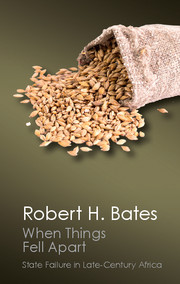4 - Policy Choices
from Part Two - Sowing the Seeds
Published online by Cambridge University Press: 05 October 2015
Summary
Focusing on the determinants of economic growth in the post-independence period, researchers from the Africa Economic Research Consortium (AERC) isolated a set of “antigrowth” syndromes: styles of policy making that reduce the rate at which national economies could grow (Ndulu, Collier et al. 2007). Most common is the combination of policies that they designate as “control regimes,” which led to:
A closed economy.
The distortion of key prices in the macroeconomy.
The promotion and regulation of industries.
The regulation of markets.
In this chapter, I shall describe these policies and discuss their origins and their consequences. Control regimes are economically costly, and I shall explain why incumbents nonetheless retained them, even after their costs were known. The reason, I argue, is that the policies generated political benefits for Africa's authoritarian regimes. They provided elites with sources of income and furnished means for transforming even declining economies into political organizations, enabling politicians to recruit political dependents, willing to fight – if necessary – to keep them in power. While yielding political advantages, however, these policies contributed to the subsequent collapse of Africa's states.
The Content of Control Regimes
As reported by the AERC researchers, governments that adopt control regimes regulate trade, manipulate the interest and exchange rates, and develop close ties with urban-based industries.
The Control of Trade
In the post-independence period, governments imposed tariffs and quantitative controls on a wide range of industrial products. To sell their goods in Africa's markets, foreign firms then had to “jump over” these barriers and to invest in the plant and equipment that would enable them to produce and thus market their goods locally. These policies most frequently targeted the goods most commonly consumed by the residents of poor societies: processed foods, beverages, textiles, shoes, blankets, kerosene, and other consumer products. In at least one case, Zambia, the government severely restricted the importation of automobiles; and for a brief and inglorious moment, automobiles were produced in Livingstone, a small urban center on the southern border of the country (Elliott 1971).
Macroeconomic Policies
Given the low level of industrialization, investors wishing to establish new firms had to import plant and equipment from abroad. To lower the costs of such investments, governments restructured financial markets.
- Type
- Chapter
- Information
- When Things Fell ApartState Failure in Late-Century Africa, pp. 55 - 74Publisher: Cambridge University PressPrint publication year: 2015



